Expressions and Behaviors That May Be Rude or Offensive to Crossdressers and Trans Folk
It’s common to fear making people you like upset. When our loved ones, be they family, friends, or love interests, fit in the LGBT spectrum, this fear may be even bigger. That’s because you may not understand them, so it’s easy to say something offensive without knowing.
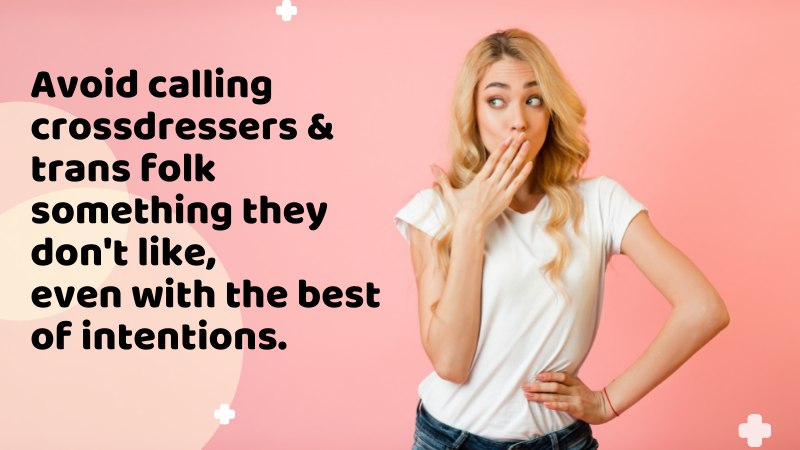
In the case of transgender people and crossdressers, you need to learn more about their identity.
Avoid calling them something they don’t like, even with the best of intentions. It may cause them to feel down.
With that in mind, this article contains a series of expressions that may be hurtful or inappropriate.
I’ll explain why you shouldn’t use them and how they can be offensive.
1. Calling them transvestites
This term is widespread and generic, so few non-LGBTQ people know of its impact.
In the past, it was used to describe men who dressed in female clothes solely for sexual reasons.
I’m not judging it; neither is the LGBTQ community.
The problem is that gender expression has nothing to do with sexual orientation and kinks.
Transgender people and crossdressers are being themselves and expressing their identity.
They don’t dress or behave like that for any kind of sexual purpose, and the term transvestite implies the opposite.
It’s because of the historical use of the word, and some people don’t care, but most of us may feel offended by this term.
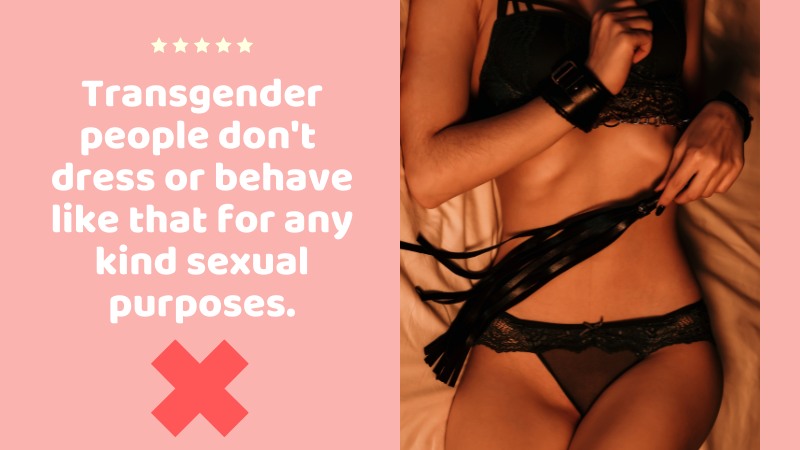
Calling a transgender person or a crossdressed a transvestite, or even worse a “Tranny” implies two possible situations.
Either that you think their gender identity is nothing more than a kink or that you don’t respect the person enough to understand who they are.
With that in mind, it’s wise to avoid this term and its variations when referring to crossdressers and trans people.
2. Mistaking the terms crossdresser and transgender
This is a common mistake, as these two terms are frequently used together.
Crossdressers are generally cisgenders who dress up in clothes associated with the opposite gender.
They do so for a variety of reasons, such as for entertainment, artistic expression, and sometimes for pleasure.
However, it doesn’t affect their gender identity or sexual orientation.
But at the end of the day, they are still willing to go back to their usual attire and to live as the gender they were assigned at birth.
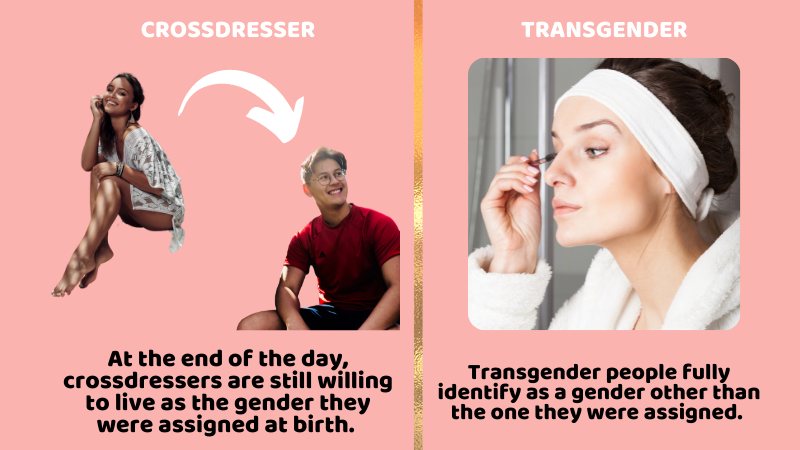
Transgender people, on the other hand, fully identify as a gender other than the one they were assigned.
They want to live and be perceived as someone of their respective identities.
Calling a trans person a “crossdresser” may be offensive to them, as it implies you think they belong to the gender they were assigned at birth.
They are not just dressing up.
And by calling a crossdresser a “transgender,” you’re reaffirming these stereotypes.
Mistaking these terms makes you look like someone who doesn’t respect these identities.
So, if you want to be respectful, make sure you understand these differences and avoid mistaking these two terms.
3. Using the wrong pronouns
This is valid for both crossdressers and trans folk. You may offend both a trans woman and a female-presenting crossdresser by using masculine pronouns.
The same is true if you use feminine pronouns with a trans man or a male-presenting crossdresser.
Non-binary folk may also go by gender-neutral pronouns.
It’s a very personal thing, as different people feel comfortable with different pronouns.
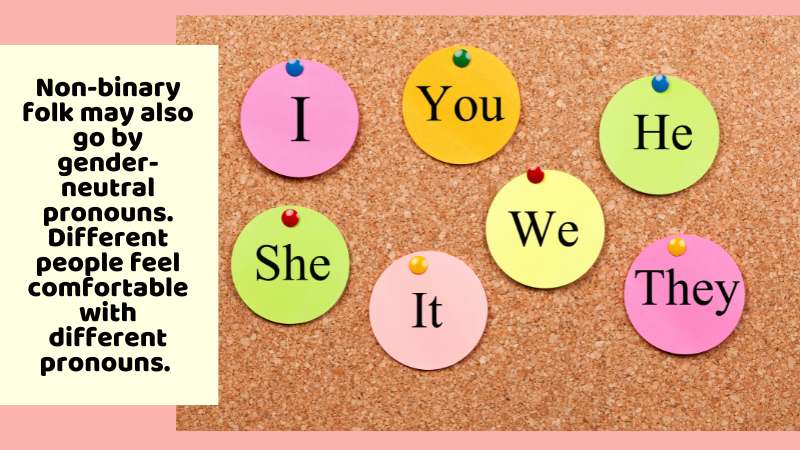
By using the right pronouns, you’re not only avoiding being offensive.
You’re also affirming and helping validate their identities.
4. Dead Naming
A dead name is a name someone no longer goes by.
It’s common for trans people to adopt a new name after coming out.
Some crossdressers also have different names that they use when presenting as male or female.
But still, some people insist on calling them by their dead names.
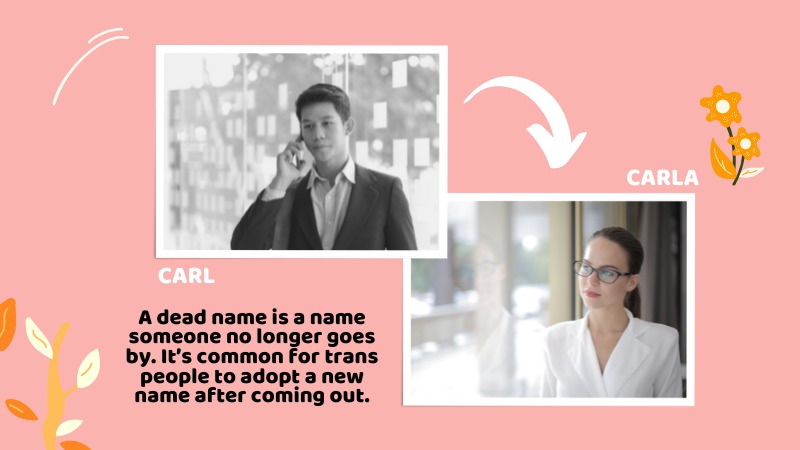
It may be difficult to deal with this change.
But if you call them by a name they no longer use, you’ll be hurting them.
Dead-naming a transgender person may trigger bad memories from when they were closeted.
This way, you may lose their trust and affection.
5. Calling them drag queens
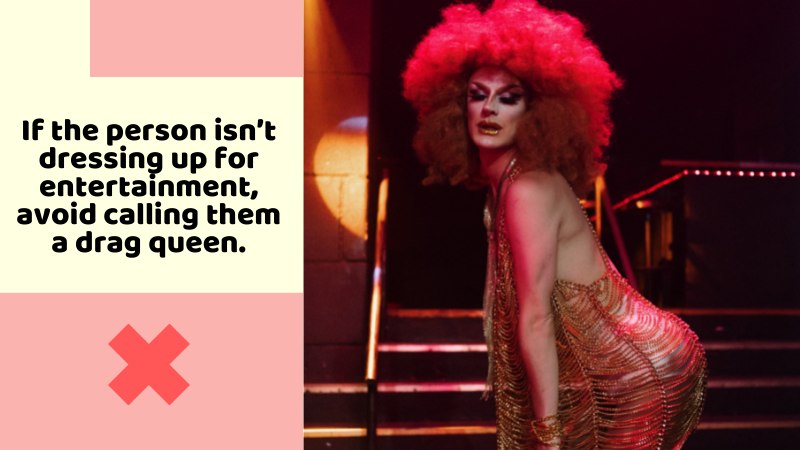
This is very relevant since this term is now popular in pop culture.
Drag queens are men who dress up as women for art and entertainment.
Their female selves are characters rather than their identities.
It’s like a costume they wear for their shows and doesn’t reflect their gender identity.
As this is a well-spread term, mistakes happen quite often.
But that’s also simple to avoid once you understand what a drag queen is.
With that in mind, if the person isn’t dressing up for entertainment, avoid calling them a drag queen.
6. How to avoid offending crossdressers and trans people
These terms and behaviors are more of a general parameter.
They tend to be offensive to most people and may upset them.
But each person is unique, and different people react differently to certain situations.
It’s common to be unsure of which pronouns someone goes by, and what’s their new name in some cases.
And thus, it’s common to get stuck or afraid to refer to them.
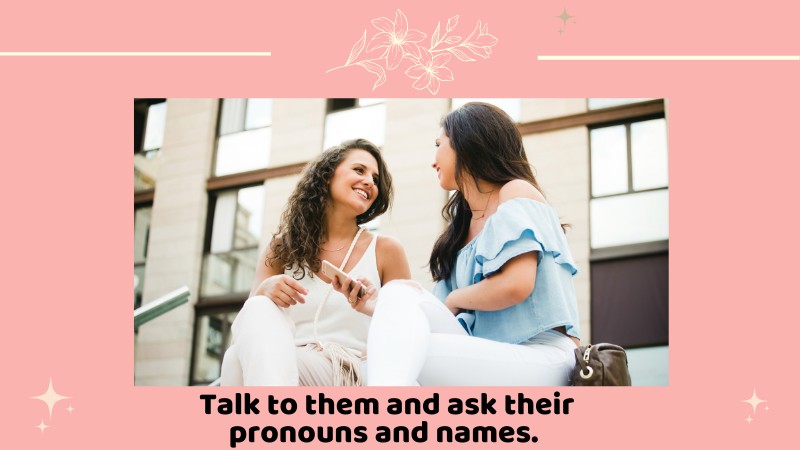
The best thing you can do is to talk to them and ask their pronouns and names.
As you meet new people, get used to these questions.
With time, ask how they identify and which terms are fine.
It’s a matter of knowing each other better.
With understanding comes respect, and mistakes become rare.
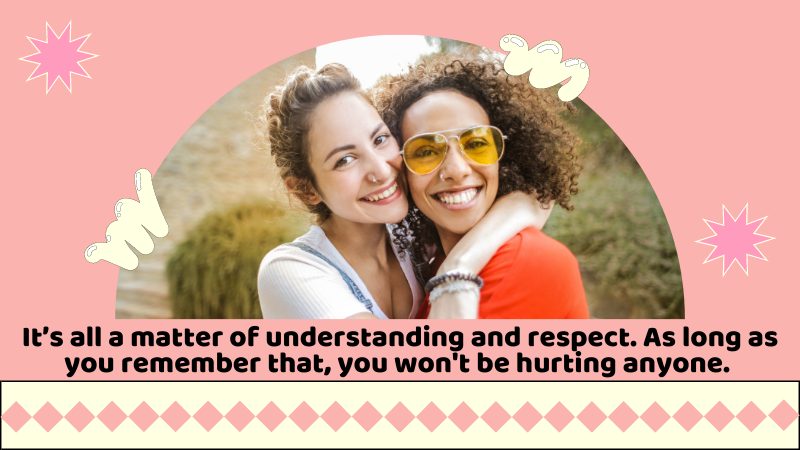
All of these terms have their origins and refer to different things.
Mistaking them can be offensive for both sides.
It’s all a matter of understanding and respect.
As long as you remember that, you won’t be hurting anyone.
Make sure to share your thoughts, and let us know your pronouns in the comments below!
Learn More:
Tagged With:Things May be Offensive to CD/TG
- Feminize Your Neck: Hide the Adam’s Apple!
- The Power of Feminization Apps for MtF Crossdressers
- Best Crossdresser Destinations to Visit in Africa
- Crossdresser’s Tips to Feel Like a Sissy 24/7
- How to Be a Professional Cross dresser Escort
- Spider Gag: A Beginner’s Guide to Using and Introducing Them in Your Playtime Routine
Established in 2009, We are a recognized manufacturer and seller of professional crossdressing products.
It is our aim to become not just the most creative manufacturer but also a very considerate seller, as we provide the best quality products for crossdressers all around the world.
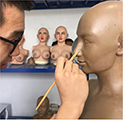
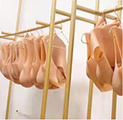





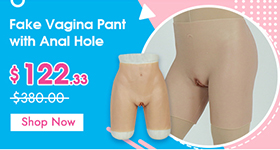

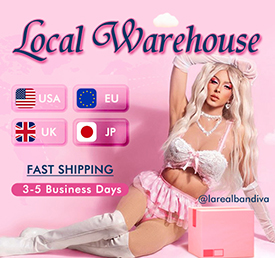



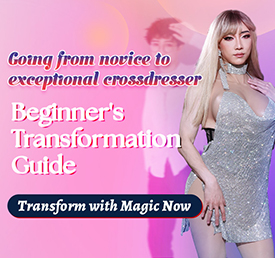

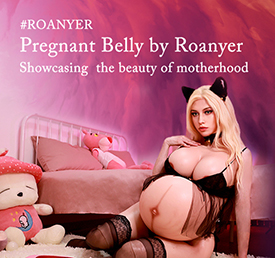





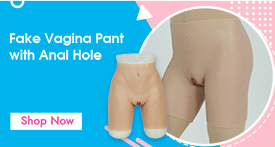

 Breast Forms
Breast Forms  Body Suit
Body Suit  Realistic Mask
Realistic Mask  Femini Girdle
Femini Girdle Hip & Butt Enhancement (8)
Hip & Butt Enhancement (8) Penis Prosthesis
Penis Prosthesis Fake Muscle
Fake Muscle Bikini
Bikini  Wig
Wig  Corsets
Corsets Course
Course service@roanyer.com
service@roanyer.com +8618652200711
+8618652200711 Facebook
Facebook YouTube
YouTube Twitter
Twitter Instagram
Instagram




